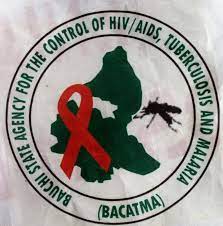Francis Ubong lives in Uyo, Akwa Ibom State. He had a slight fever and ran to a nearby chemist where he bought some drugs which he took and later recovered. But after two weeks, the fever came back and was severe this time.
He started coughing and shedding weight and could not eat. He was eventually diagnosed with Tuberculosis at the Asokoro District Hospital in Abuja and placed on 6-month compulsory treatment. After completing the treatment, Francis was luckily certified free of Tuberculosis.
Francis and other Tuberculosis survivors including Oluwafunke Dosunmun, Adeola Adams and Oluseyi Kadiri were fortunate to defeat the disease and remain alive to tell their stories. For them, it was not a palatable experience. While they were lucky to survive, many were not so lucky.

According to the World Health Organization (WHO), 1.5 million people died from Tuberculosis in 2020. The WHO 2021 Global Tuberculosis report estimates that Worldwide, TB is the 13th cause of death and the second leading infectious killer after COVID-19 (above HIV/AIDS).
The report says that in 2020, an estimated 10 million people fell ill with tuberculosis (TB) worldwide. Experts said Tuberculosis is the leading killer of people living with HIV. Nigeria is one of the 8 countries with two thirds of people who developed Tuberculosis in 2020. Other countries include India, China, Indonesia, Philippines, Pakistan, Bangladesh and South Africa.
The Director and National Coordinator of National Tuberculosis, Leprosy and Buruli Ulcer Control Programme at Federal Ministry Health, Dr. Chukwuma Anyaike, said Tuberculosis (TB) is a chronic disease caused by mycobacterium tuberculosis, a bacterium that mostly affects the lungs. This bacterium also affects other parts of the body giving the classification of the disease by this organism into pulmonary and extra-pulmonary Tuberculosis. He said globally, Nigeria is number six among the countries most hit by Tuberculosis and that the country is the number one among the African countries affected by the disease.
Dr. Anyaike said patients with active TB can infect 10–15 close contacts within the course of a year and those with compromised immunity are highly vulnerable.
According to him, “The spread of TB is from person to person through the air. When people with pulmonary TB cough, sneeze or spit, they propel the TB germs into the air and a close and vulnerable contact to the index case will only need to inhale an appropriate dose of the germs to become infected with TB and with appropriate immune reduction, the host will develop the disease. When an infected person develops active TB disease, symptoms such as cough, fever, night sweats, or weight loss will manifest in a mild form for many months.”
Despite that Tuberculosis is curable and preventable and the treatment is free in Nigeria, it has always been associated with a high mortality rate in the country. One of the reasons for this is because of the discrimination and stigmatization of persons affected by TB.
A TB survivor, Ubong, said his cousin who had TB abandoned his treatment when he experienced stigmatization and this worsened his case.
He said, “When my cousin was diagnosed of TB, he started treatment and he was responding well but he eventually abandoned the treatment because one of the health workers in the hospital stigmatised him. His case became worse and he was only lucky to remain alive today. Many TB patients die under this kind of circumstances. Discrimination and stigmatization is a big issue for persons affected by TB.”

Dosunmun, Adams and Kadiri corroborated Ubong’s story on the experience of persons affected by TB and called for action to stop discrimination and stigmatization against affected persons. They noted that many TB patients lost their jobs because of their condition, thereby making it difficult for them to cater for their dependants. They also noted that despite the fact that the treatment of TB is free in Nigeria, persons affected by TB face serious financial challenges that often make life difficult for them. They noted that many TB patients do not have money for transportation to go for their treatment. They also lamented that many of them were unable to feed well and that malnutrition often complicated their situation. They wanted law that will protect their health rights.
As part of moves to address the issues of discrimination and stigmatization against persons affected by TB and other health challenges, a non-profit organization in the country, Lawyer Alert, in collaboration with Debriche Health Development Center (DHDC) with the support from Stop TB Partnership organised separate sensitization and legal training workshops on Tuberculosis in Lagos and Abuja for legal practitioners, journalists, civil society organisations, health workers and persons affected by TB with the theme: “The Vital Roles of the Court and Lawyers in Promoting Human and Health Rights”.
Professor Brian Citro, an American human rights lawyer and researcher, in his presentation observed that adequate information about TB would reduce stigmatization and discrimination against person affected by Tuberculosis in Nigeria.
Citro said the more people understand TB better, the less discrimination and stigma. He said lack of adequate information and awareness were major factors fuelling discrimination against persons affected by Tuberculosis. He called on media to sensitize the public on the need to end discrimination against the affected persons and support them to overcome the challenge.
Citro said, “TB is curable and it’s not a death sentence. When people take TB treatment very quickly, they are no longer contagious. If people know this, it will reduce the fear and the stigma. Also, we need to use the law. So, we have to have a law that protects the persons affected by TB. A law that expressly and explicitly prohibits discrimination against persons affected by TB.”
The Chief Judge of the Federal High Court of Nigeria, Justice John Terhemba Tsoho and the Chief Judge of the Federal Capital Territory, Abuja, Justice Husseini Baba Yusuf, canvassed for access to justice for victims of health rights violation in Nigeria.
The judges said international human rights law had gone a step further to provide for the right to health through inclusive and resilient health care for all. Justice Yusuf noted that the international human rights law provision is justified and universally supported because it is believed that the essence of recognizing and safeguarding human rights is to ensure the possibility of living healthily in dignified freedom.
President of Lawyers Alert, Barrister Rommy Mom, urged the media to educate persons affected by TB on their rights. He urged lawyers to provide free legal services to persons affected by TB when they want to enforce their rights.
Mom said, “We are talking about the rights of persons affected by TB, those who have been infected in the past, the survivors of TB and their family members. In Nigeria today, TB is the biggest communicable disease in terms of persons who have lost their lives. What make their problems worse are two issues which are stigma and discrimination. These are human rights issues.”
The Executive Director, Debriche Health Development Center, Mrs Deborah Ogwuche-Ikeh, said close collaboration among all relevant stakeholders is key to ending TB in Nigeria and providing support for the survivors.
She said, “We believe that with knowledge, stigma and discrimination would reduce. To end discrimination against persons affected by TB, there is need for close collaboration and engagement between the TB affected Community and relevant stakeholders including the legal service providers and the media. This is very important because it is going to improve knowledge and provide psychological and psychosocial support to persons affected by TB.”
With the push by the citizens, they are hoping that Nigerian government would be more deliberate in the protection of and promotion of health rights, especially negating stigma and discrimination of persons affected by TB.



